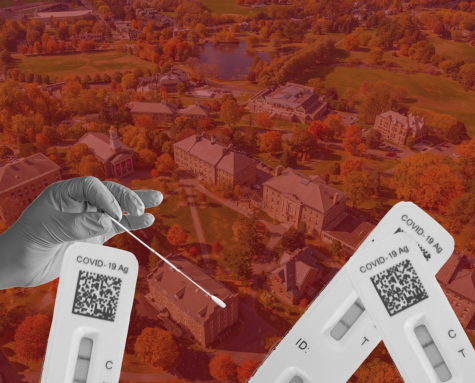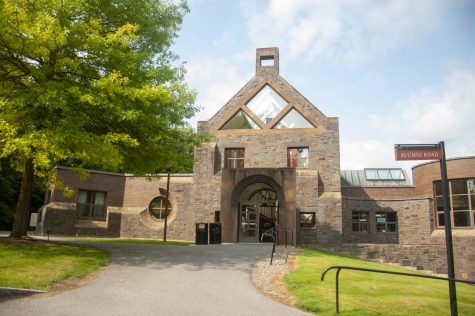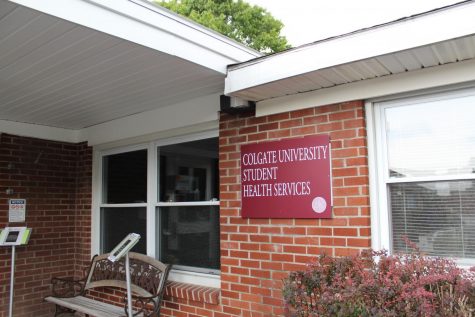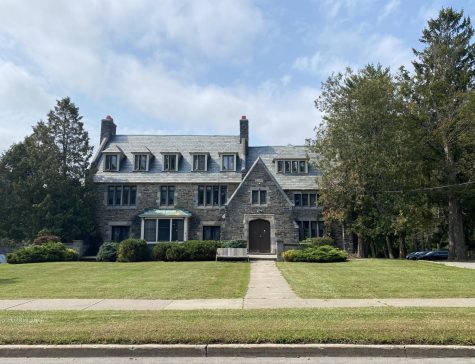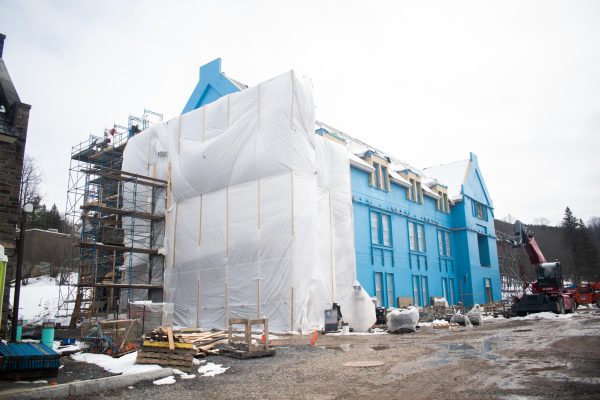University Enacts Task Force on Remote Instruction
University President Brain W. Casey recently announced the formation of the Task Force on Remote Instruction in an email to the Colgate community. The Task Force was announced in tandem with The Task Force on Reopening the Colgate Campus, both of which serve to prepare for instruction during the Fall semester, whether it be conducted online or through in-person instruction. The committee is chaired by Chief Information Officer (CIO) Niranjan Davray and Professor of Biology and Director of Colgate’s Center for Teaching, Learning and Research James (Eddie) Watkins. The Task Force, composed of 13 faculty, staff and one student representative, considers platforms and techniques to provide the best possible education in the event that the fall semester will be conducted either partially or entirely via remote instruction.
The University announced on May 6 that a decision regarding fall instruction would be announced no later than June 30. During that time, the Task Force is collecting data and preparing recommendations to improve the quality of remote instruction for faculty and students.
The Task Force is compiling data to identify what was successful in the Spring and what can be addressed and improved for the Fall. Task Force member Professor of Geology and Peace and Conflict Studies Karen Harpp said the committee does not plan to necessarily mandate teaching methods, but to provide recommendations on how Colgate can improve the educational experience should it continue remotely.
“A really important part of institutions like Colgate is that professors are encouraged to teach how they think is best,” Harpp said. “I would hope that we figure out a way to curate resources and provide workshops and different kinds of options for training and idea generation. We can build learning communities that have common goals and get ideas from each other. I think what we have to do as a Task Force is try to connect each other. It’s to make faculty feel supported and try to really improve that online experience.”
As for the solution, Harpp and Yang said the Task Force aims to listen to voices and put together recommendations. What the final product will be remains unknown at this point. It could reflect resources for Professors and students alike, attempting to assist people in their own teaching and learning as opposed to vast institutional changes.
Watkins said that this process represents commitment to Colgate’s mission and community.
“[The Task Force] represents the true spirit of Colgate: deep and real continuous intellectual engagement with our students. Colgate continues to do what it does best: teach and learn with and from our students,” Watkins said. “In many ways, this crisis has brought out the best in our faculty and in our students. We reach out and ask for help and support from our faculty and they come through…we reach out and ask for help from our students and they come through… even over the summer!”
The Task Force has enlisted the help of students to share their experiences and opinions regarding online learning and serve on an all-student committee to collect data through interviews with the student body. Sophomore Eliza Trainer, a member of the student data collection committee, has spent the last two weeks reaching out to students, gathering feedback to guide the next phase of the project.
“The Task Force thought it was really important that student voices be heard, as we are the ones doing the learning, and this change would impact us,” Trainer said. “Our job is to make students’ voices heard and incorporate student opinion into any changes that are made to the learning experience.”
The Task Force is currently reviewing data collected from hundreds of student interviews while preparing potential solutions and recommendations. Trainer said she’s collected feedback over Zoom from students of all class years with a significant variety of remote learning experiences.
“We are interviewing people who might not have had good internet connection, or people who had distractions at home. We are talking to students, collecting their stories, and hearing as much as we can in order to prepare”, Trainer said.
Senior Risako Yang, who represents the student body on the Task Force, believes that the final product will focus largely on the work of the Center for Teaching, Learning and Research.
“We’re holding on getting to a solution until we figure out exactly what we need to solve in the first place,” Yang said. “There is a focus to get the students more structure, which seems to be a concern that I’ve been hearing, and the faculty wanted more frequent and specific feedback. It will be a very CTLR focused solution—a resource for professors and students to compliment and transition to full time online learning.”
Echoing Yang’s sentiment, Harpp said the Task Force centers around creative thinking and a sense of urgency.
“We basically want to do as much as we can as soon as we can,” Harpp said. “We’re not just reinventing the wheel, but rather maybe even inventing a different mode of transport altogether. We have to think in very different ways and that is what we’re up against.”
Harpp said the Task Force has a unique opportunity to prepare for the long-term future finding new ways to integrate technology into in-person learning. She cites programs from her Spring semester courses that would not have been achievable without online platforms, such as her Project Garden Presentations for her d.Lab course, Emerging Global Challenges, reached an audience of students, parents and guests from across the country instead of just those available to attend on campus.
“I want to find the silver lining,” she said. “I want us to be brave and push the boundaries for education. I want to see us leverage technology to do things we can’t do in person. If we are smart about it, we can revolutionize education and then take those pieces and plug it back in when we presumably return to fully live, in-person learning.”
Yang recognizes the significant challenge that the Task Force faces to address issues that affect a broad range of faculty and students, in many different ways.
“It’s hard to please everyone. There are so many voices in the task force from different disciplines, perspectives, opinions and experiences. I think we should work to support, but not necessarily satisfy every single person. Comprehensive support systems, resources, and ways to build communities would be much better,” Yang said.
The Task Force will continue to work daily to gather opinions and devise ways to improve the experience for all students and Faculty. Their project timeline is not specific but aims to ready assistance prior to the start of the 2020-2021 academic year. While students and Professors alike await announcements regarding the status of instruction in for the Fall Semester from President Brian Casey and the Task Force on Reopening the Colgate Campus, the Task Force on Remote Instruction will ready solutions and suggestions regardless of the announcement due by June 30 to better the learning experience in any way possible.

Ethan Cherry is a senior from Baltimore, MD studying political science and architecture. He has previously served as multimedia manager, news editor, assistant...






